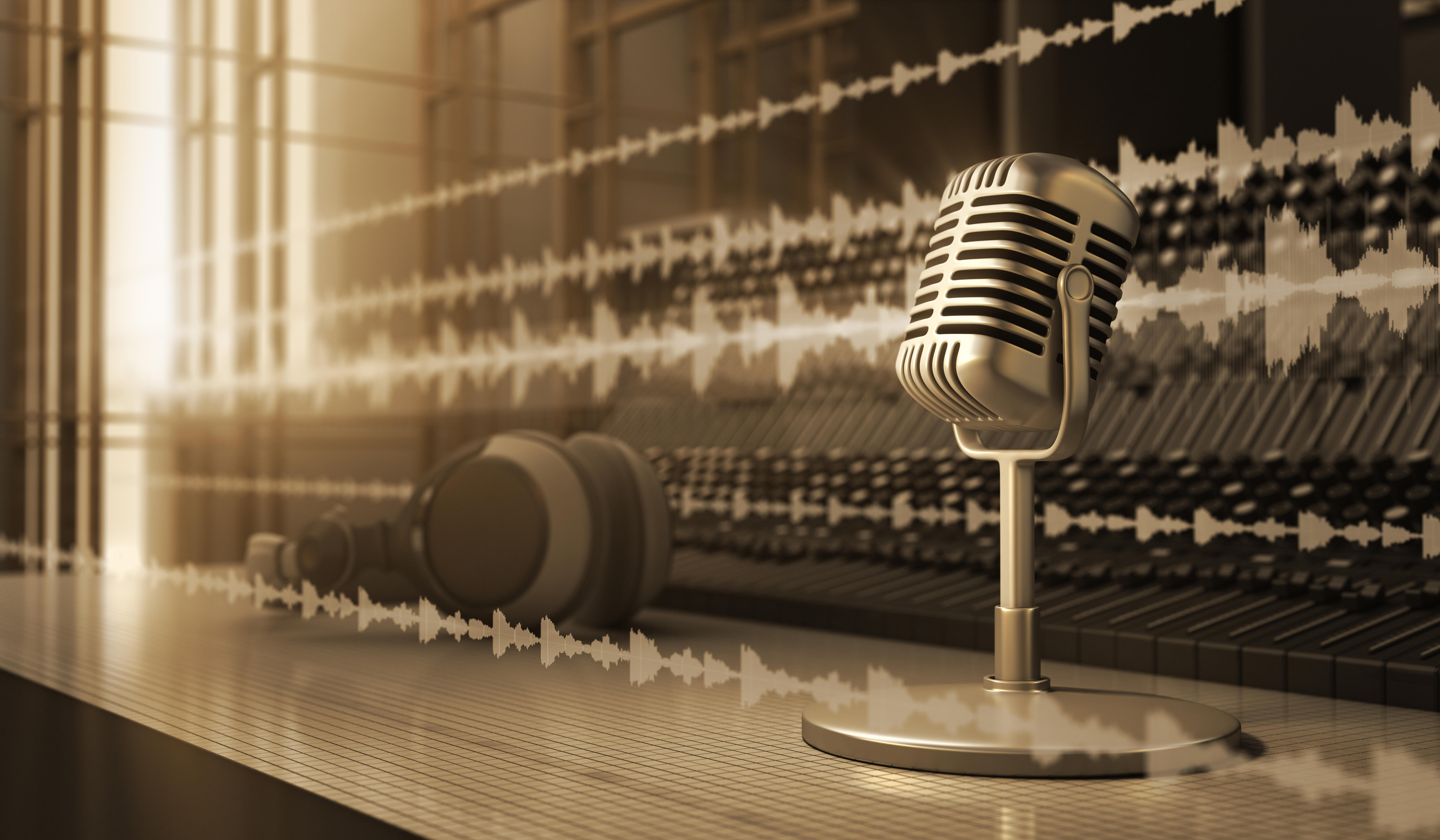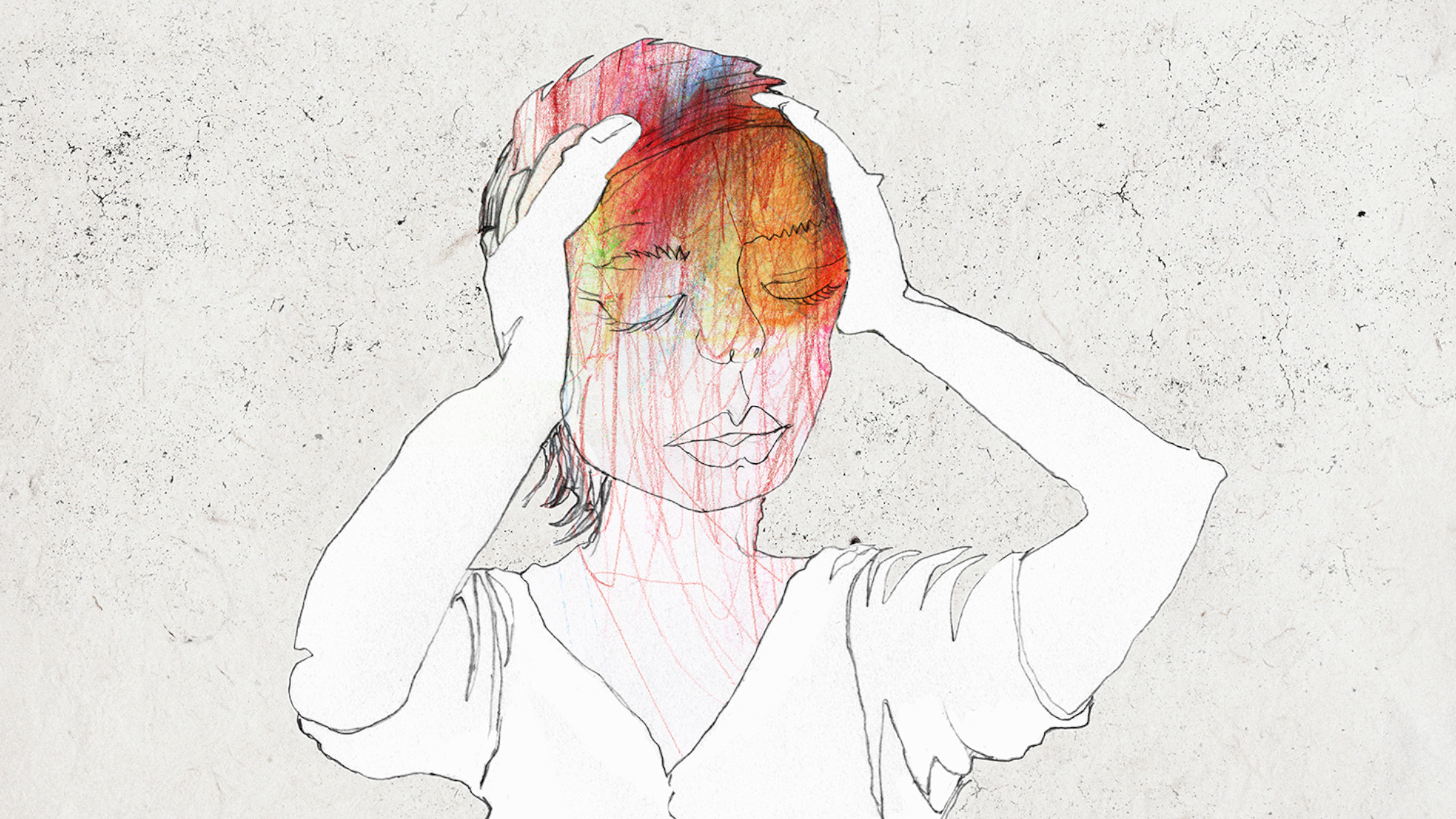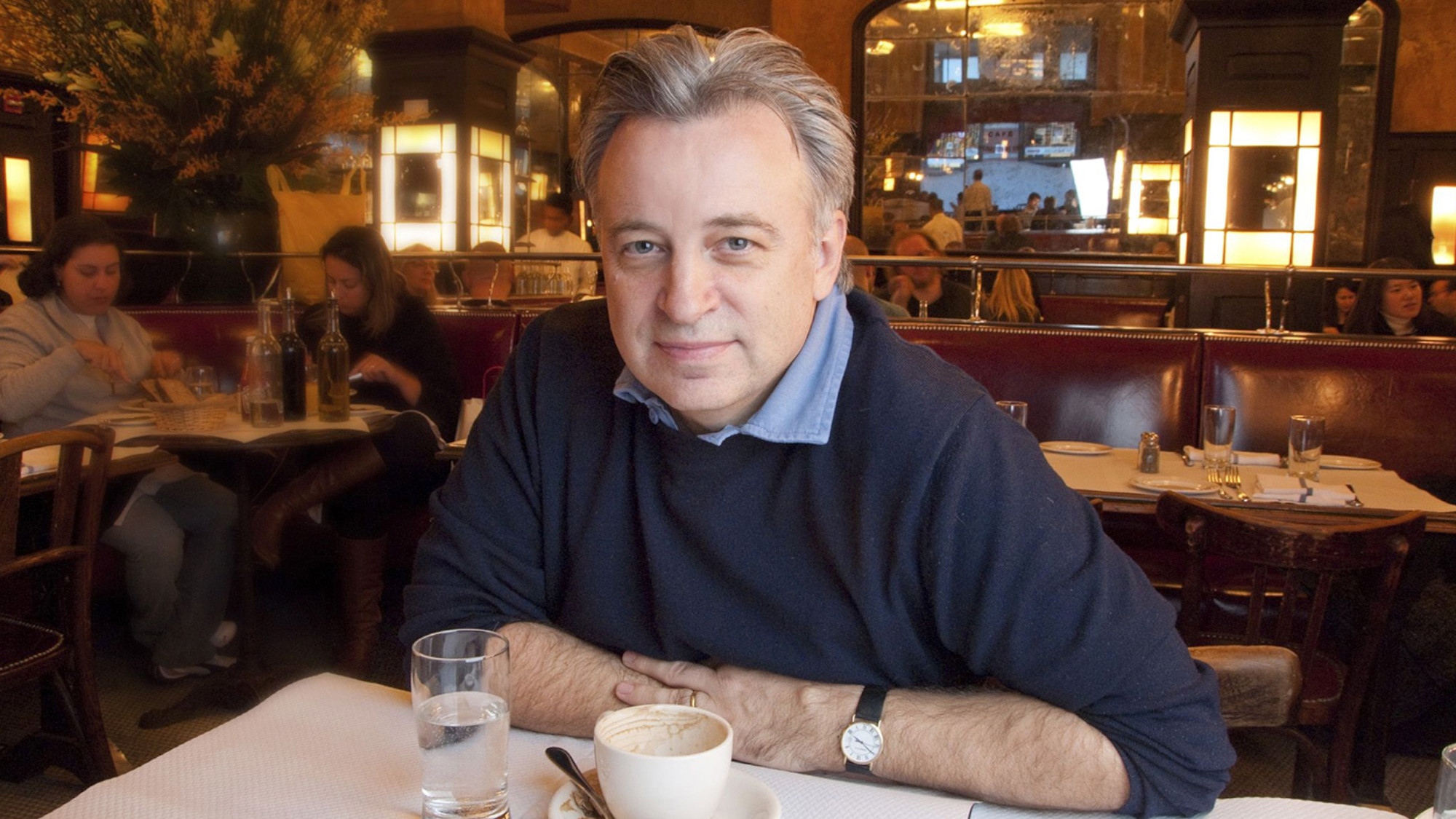How audiobook narrators master their craft
Audiobook narrator Scott Brick talks about working with authors, setting the mood, and sounding very, very smooth

Audiobook narrator Scott Brick can't stop telling stories. He has recorded almost 800 in his 17-year career, and while his specialty is mystery, thriller, and science fiction — Robert Ludlum's Bourne series, Justin Cronin's The Passage trilogy, and Frank Herbert's Dune saga, to name a few — he also works in nonfiction, classics, and other genres. Brick has won five Audie Awards (the Oscars of the audio industry), including two this year: in science fiction, for the 25th anniversary edition of Michael Crichton's Jurassic Park, and in thrillers, for Steve Berry's The Patriot Threat. He's also been named a "Golden Voice" by AudioFile magazine. (One could liken his smooth baritone to any number of sweet, slow-moving liquids — caramel, honey, syrup — but better to just listen for yourself.) Earlier this month, he took time out from recording his latest to talk about the ins and outs of audiobook work; here's a lightly edited version of the conversation.
What makes a good audiobook narrator?
It sounds oversimple and some people think I'm being dismissive when I say it, but it all comes down to how well you can tell a story. There are so many people I know who have a beautiful voice, a magical-sounding voice, but they just don't know how to carry a story. It's not necessarily their acting skills, because there are celebrities who've got fabulous acting skills and yet they may not be able to tell the story quite right. It's an intangible thing; you know it when you hear it.
Subscribe to The Week
Escape your echo chamber. Get the facts behind the news, plus analysis from multiple perspectives.

Sign up for The Week's Free Newsletters
From our morning news briefing to a weekly Good News Newsletter, get the best of The Week delivered directly to your inbox.
From our morning news briefing to a weekly Good News Newsletter, get the best of The Week delivered directly to your inbox.
You studied acting and writing at UCLA, and performed in a traveling Shakespeare company for a decade. Did that uniquely prepare you for audio?
Yes, although unknowingly on my part. Shakespeare certainly helped in terms of diction and understanding complex story structure, but my writing background helped equally. Because the more you know what an author does — the more you know why an author does what he or she does — the better you'll be able to help them do their job. All storytelling is misdirection. The author wants you to think this shiny character over here is the one whodunit, but the person who really done it is this person over there that you always thought was the hero. When I understand how the author is misleading the audience, then I can help to subtly do the same thing.
How do you prepare for a job?
Looking up the pronunciations is the vast majority of it. There are so many words that when you look at them, you think you understand how they're said. But I look at words all the time and realize I have never said this aloud and I may be wrong. I used to look at the word macadam — you know blacktop, concrete, whatever you call it — and I would think macaDAM. If I had done that, people who are smarter than me would have been completely taken out of the listening experience.
A free daily email with the biggest news stories of the day – and the best features from TheWeek.com
Right now I'm working on the latest installment in the Dune series that Frank Herbert started years ago. I was speaking to his son yesterday, going over all of these words that were made up for the series. I record our phone conversations so I can hear him say the words, and then I can write them out phonetically, and then I refer back to the recording and to the phonetic pronunciation as I record. We're up to 1,800 words that are unique to that world.
What else do you do to prepare?
Obviously you have to read the book. You look for vocal references, like "his high-pitched whine of a voice." Any of those references that talk about how the voice sounds or the accent that comes out, I need to file away and refer back to. Those are the primary things but every once in a while I'll do something to get myself in the mood of a genre.
For instance, I was working on a book called A Stir of Echoes. It's a horror story told in the first person, about a guy who doesn't believe in ghosts until his 4-year-old son suddenly starts speaking in the voice of an 80-year-old dead woman. He's forced to contemplate, might the supernatural actually exist? He's terrified throughout the book. So, instead of recording it during the day, I waited until about 9 p.m. when it got dark, and I shut off all my phones, put The Shining in my DVD player, and watched it until about midnight. And then I went downstairs in my big, empty, hardwood floor-lined house that echoes a great deal and went into my studio and turned off all the lights. All alone in my house, I started recording that book. I thought, if I feel scared, then I'm probably going to sound scared. The next night I followed it up by doing the exact same thing and watching The Ring. You can't do that with every book, but I don't work in horror very often and I thought, why not go to the extra effort?
Where do voices and accents come in?
Doing a character voice vs. doing an accent is a different thing. To me, an accent is just a natural part of the audiobook process. With certain accents — Slavish, Russian, and French — the thicker and more precise you get, the harder it is for an American audience to understand. I always do a little bit of the accent so it doesn't interfere with the words but gets the idea across.
Then you've got character voices, which I don't do very often because I typically work in 21st-century American realism. Most of the time, I can't do voices that you would expect to hear in a Saturday morning cartoon, something a bit over the top. Those voices have a place in audiobooks, but it's typically for other genres, young adult, the Harry Potter books, fantasy, that kind of thing. If I work in those genres, I'll do those voices. But it's only about 10 percent of the time.
How do the mechanics work once you're in the studio?
We try to do about three finished hours of material a day, which probably takes about six hours to record. We do that for however long the book happens to be. The average novel these days is 100,000 words, so it takes about four days to record. I speak about 9,000 words in an hour. I've done books in one day. But I also did Atlas Shrugged, which was 63 hours finished and took me about a month and a half.
How do you take care of your voice?
It's primarily hydration. I'm a nut when it comes to drinking water. I never start recording until I've had at least two liters of water, and I take down five or six per day. That has done wonders to preserve my voice. But I do other preventative things. I don't sing karaoke. When I go to the ballpark — I'm a huge Dodger fan — I can't yell for my team when they get a home run. I don't sing in the car to the radio anymore. Little things like that.
Do you collaborate with your authors?
Some are more hands-on than others. I've never had an author come in and insist I do it one way or the other. But I realize these are personal creations and there's a great deal of trust involved, so when they just allow me to go in and do what I do, I find that humbling and honoring.
But occasionally an author wants to be involved and I love that perhaps even more. For example, mystery/suspense writer Brad Meltzer and I will talk about names before I record any of his books because he puts in lots of references to his friends and I want to make sure I'm pronouncing them correctly. Crime novelist Gregg Hurwitz had a musical reference; the parents sing their kids a lullaby. I'd never heard it, so I called him and said, ‘Can you help me out?' And he conferenced in his wife, because she sang it to his kid. So she sings it for me, I record the conversation, and say great, I know what to do. And then, every once in a while, I'll get an email from an author who will share something really deep and insightful about their book.
Statistics suggest that audiobooks are enjoying a surge in popularity. Have you sensed the change?
Yes. People will ask me, do you think it's the proliferation and the growth of technology that has made audiobooks so popular? And I point to how popular they were becoming by getting into the bookstores for the first time long before iPads happened. So I say, yes, it's helped, but it's not the only reason. I think the reason audiobooks have become so popular and continue to become so popular is because we were read to as kids and we miss it. I think every one of us, when we hear a good audiobook, we remember that visceral thrill of when our third grade teacher read to us in class, or our mothers read to us in bed or our dads came home late at night after work and read to us. We remember it and we want more.
Alexis Boncy is special projects editor for The Week and TheWeek.com. Previously she was the managing editor for the alumni magazine Columbia College Today. She has an M.F.A. from Columbia University's School of the Arts and a B.A. from the University of Virginia.
-
 What to know before turning to AI for financial advice
What to know before turning to AI for financial advicethe explainer It can help you crunch the numbers — but it might also pocket your data
-
 Book reviews: 'The Headache: The Science of a Most Confounding Affliction—and a Search for Relief' and 'Tonight in Jungleland: The Making of Born to Run'
Book reviews: 'The Headache: The Science of a Most Confounding Affliction—and a Search for Relief' and 'Tonight in Jungleland: The Making of Born to Run'Feature The search for a headache cure and revisiting Springsteen's 'Born to Run' album on its 50th anniversary
-
 Keith McNally' 6 favorite books that have ambitious characters
Keith McNally' 6 favorite books that have ambitious charactersFeature The London-born restaurateur recommends works by Leo Tolstoy, John le Carré, and more